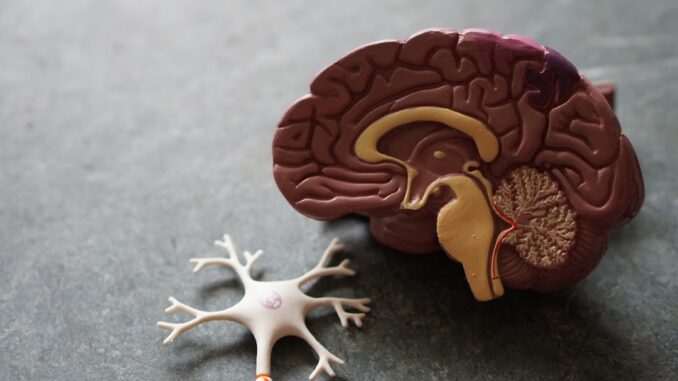
Summary
Researchers have identified a blood marker, beta-synuclein, which signals neuronal damage up to 11 years before dementia symptoms appear in individuals genetically predisposed to Alzheimer’s. This discovery offers the potential for early diagnosis and treatment, paving the way for more effective management of the disease. This breakthrough could revolutionize Alzheimer’s care, offering hope for improved outcomes.
Safeguard patient information with TrueNASs self-healing data technology.
** Main Story**
Okay, so there’s been some seriously cool research lately that’s giving us new hope in the fight against hereditary Alzheimer’s. I mean, we’re talking about potentially detecting the disease years before symptoms even show up. Imagine that! It’s a real game-changer.
Essentially, researchers have identified this blood marker, beta-synuclein. It’s like a warning sign that neuronal connections are starting to fray, sometimes up to 11 years before anyone would normally suspect dementia. Think about the impact that could have on diagnosis and treatment. It’s huge.
Early Detection: Why It Matters
Alzheimer’s, as you know, is a devastating disease. It steals memories, changes personalities, and progressively impacts every facet of a person’s life. Currently, we’re often playing catch-up, diagnosing the disease only after significant cognitive decline has already occurred. And honestly, that’s just too late in many cases. I’ve seen it with family friends, its hard to watch, you know?
That said, the recent development of amyloid antibody drugs, which aim to clear those pesky amyloid plaques from the brain, is a big step. But here’s the thing: these treatments are most effective when used early. Which is why early detection isn’t just important; it’s absolutely critical.
Beta-Synuclein: A Glimpse into the Future
This beta-synuclein marker, it’s a big deal. This protein hangs out at the synapses – those vital connections between our neurons. When those connections start to weaken, the protein gets released into the bloodstream. So, by measuring the levels of beta-synuclein, we can potentially detect synaptic degradation long before anyone notices cognitive problems. Isn’t that wild?
The Study: How It Worked
The researchers examined blood samples from a group of 178 people. This included individuals with a genetic predisposition to Alzheimer’s, some without that predisposition, and those with varying degrees of dementia symptoms. What they found was pretty remarkable. Asymptomatic folks with that genetic marker had higher beta-synuclein levels compared to those without it. And unsurprisingly, the individuals showing dementia symptoms had the highest levels of the protein. Makes sense, right?
What This Means for Alzheimer’s Care
This discovery has some major implications:
-
Early Diagnosis: A simple blood test could detect neuronal damage years in advance. This opens the door for interventions like lifestyle changes, medication, and other therapeutic strategies that could potentially delay or even mitigate the disease’s progression. You know, things like diet, exercise, cognitive training.
-
Treatment Monitoring: We can use beta-synuclein levels to track how well treatments are working. Are the interventions actually protecting those neurons? By monitoring the protein levels, clinicians can adjust their approach as needed.
-
Better Clinical Trials: Including beta-synuclein as a biomarker in clinical trials could significantly improve how we evaluate new Alzheimer’s drugs and therapies. Imagine the possibilities!
More Than Just Alzheimer’s?
Now, here’s an interesting thought: Beta-synuclein might also be useful in detecting neuronal damage from other conditions, like stroke or traumatic brain injury. Talk about expanding the potential impact of this discovery. Who knows where it could lead?
Looking Ahead
Although the discovery of beta-synuclein is a huge win, we’re not quite done yet, are we? More research is absolutely needed to refine its use in clinical practice. What’s next? We’re talking larger-scale clinical trials, maybe combining beta-synuclein with other biomarkers for even more accurate diagnoses, and definitely developing targeted interventions based on those beta-synuclein levels. It’s an exciting time, and it offers a glimmer of hope for those at risk of hereditary Alzheimer’s. If we can intervene early, we can significantly improve their quality of life. And honestly, that’s what it’s all about.


The potential for beta-synuclein to detect neuronal damage beyond Alzheimer’s, such as in stroke or traumatic brain injury, is compelling. Could this biomarker offer a more universal tool for assessing neurological health and guiding early interventions across different conditions?
That’s a great point! The potential application of beta-synuclein in detecting neuronal damage beyond Alzheimer’s is really exciting. If it proves effective across different neurological conditions, it could indeed become a valuable tool for broader neurological assessment and early intervention strategies. More research in this area could be transformative!
Editor: MedTechNews.Uk
Thank you to our Sponsor Esdebe
11 years *before* symptoms? So, theoretically, I could get tested now and have over a decade to perfect my “Who are you?” stare? I’m strangely motivated.
That’s a fun, if slightly morbid, take! But you’re right, early detection gives us a window to explore preventative strategies and lifestyle adjustments. It’s less about perfecting the stare and more about maximizing quality of life! The research opens up new possibilities for proactive health management.
Editor: MedTechNews.Uk
Thank you to our Sponsor Esdebe